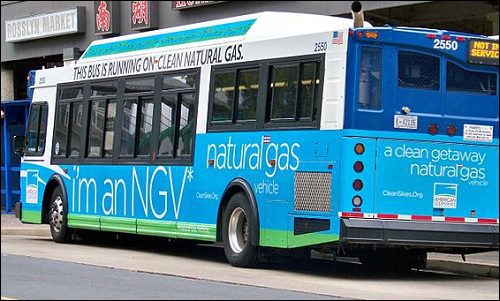After months of court filings to finish a major legal settlement by automaker Volkswagen over charges of violating the Clean Air Act, a countdown has begun for states to tap into a nearly $3 billion mitigation projects fund VW has established for the transportation sector.
States and tribes can use funds the trust set aside for them over 10 years to pay for a range of projects aimed at reducing their transportation emissions, such as replacing older-model trucks or fleet vehicles, acquiring zero- or low-emission transit buses, retrofitting harbor tugboats and ferries with cleaner-burning power units, replacing ground vehicles at airports and repowering locomotives.
This all resulted from a scandal in which VW used “defeat devices” to deliver better emissions scores on their diesel passenger vehicles than they should have earned, while marketing them as meeting U.S. emission standards. The automaker has spent billions in vehicle buybacks and payments to car buyers, and is spending billions more for the mitigation trust and another program to fund mitigation projects.
The Environmental Protection Agency said the VW mitigation trust took effect Oct. 2, and this means that states, the District of Columbia and Puerto Rico have until Dec. 1 to elect to become beneficiaries.
Once they have so registered, by filing a certification form with the court, the EPA said states “have 10 years from the trust effective date to request their allocation and implement mitigation actions, and tribal beneficiaries have six years from the trust effective date to request their allocations.”
But they have not been waiting. Many have been developing “mitigation plans” for how they would spend the money, talking with stakeholders and planning their specific project requests.
Some plan to draw on the VW trust to help build out a network of charging stations for electric vehicles along major highway corridors, in anticipation of a surge of such vehicles entering the nation’s fleet.
Virginia on Oct. 6 issued a formal request for proposals, and wants responses by Nov. 6 so it can tap $14 million of its nearly $94 million in VW funds for the EV program.
Also this month, governors of seven states in the West signed a pact to build out their EV charging networks along interstate highways, and Colorado reportedly plans to use VW trust funds for its costs.
Colorado has also said it expects to spend about $69 million in VW funds on various efforts – to incentivize small business to replace old diesel vehicles, replace old diesel transit buses, curb emissions from off-road engines and install the electric chargers.
Some states are still working on their mitigation plans. Indiana’s governor recently designated a multi-agency committee, which includes the transportation commissioner, to help finalize project plans for spending more than $40 million in VW mitigation trust money.
Melissa Savage, director of the Center for Environmental Excellence at the American Association of State Highway and Transportation Officials, said that across the country “the VW settlement funds will help states accelerate projects like building networks of EV charging infrastructure and updating transit and school buses with lower-emission vehicles.”
She added that the resulting projects, which are usually chosen through collaborative efforts of various state agencies including the DOTs “will certainly have an impact on transportation emissions and air quality.”
The EPA also said beneficiaries must submit the required mitigation plans at least 30 days before making a first funding request. Once they submit funding requests, the trustee must act in some form within 60 days.
With all that, the EPA said beneficiaries should expect to start accessing their trust fund allotments in about six months of the trust effective date, which would be next April.
That would be timely for state departments of transportation, transit agencies and other stakeholders that have waited all this year for the Trump administration to unveil its promised infrastructure investment plan.
And they have waited all year for the administration to start awarding the 2017 round of TIGER infrastructure grants and most of this year’s freight-related or high-priority corridor grants authorized from the Highway Trust Fund.
While most states designated environmental agencies to lead their VW trust planning, many are including highway, transit, port, freight, energy and agricultural agencies or associations as they decide how best to parcel out the funds they will soon be able to use. The Iowa and Maine DOTs are lead agencies for those states.
They have been aware of the pending trust developments since the EPA and Justice Department announced the settlement last year, but legal moves continued. A series of consent decrees and court filings bumped the size of the mitigation trust from an initial $2.7 billion to more than $2.9 billion. The EPA said the court finally approved the trust agreements on Sept. 19.
Besides the mitigation trust VW must fund, the settlement calls for it to spend another $2 billion over 10 years on a zero-emission vehicle or ZEV program, of which $800 million is for projects in California and $1.2 billion is for other parts of the nation.
To manage it, VW created an “Electrify America” unit, which earlier this year announced its first round of investments to “establish a network of 2,500+ non-proprietary electric vehicle chargers at more than 450 station sites.”
It is allocating $200 million in the initial phase to support ZEV infrastructure in California, and $300 million outside of California.


